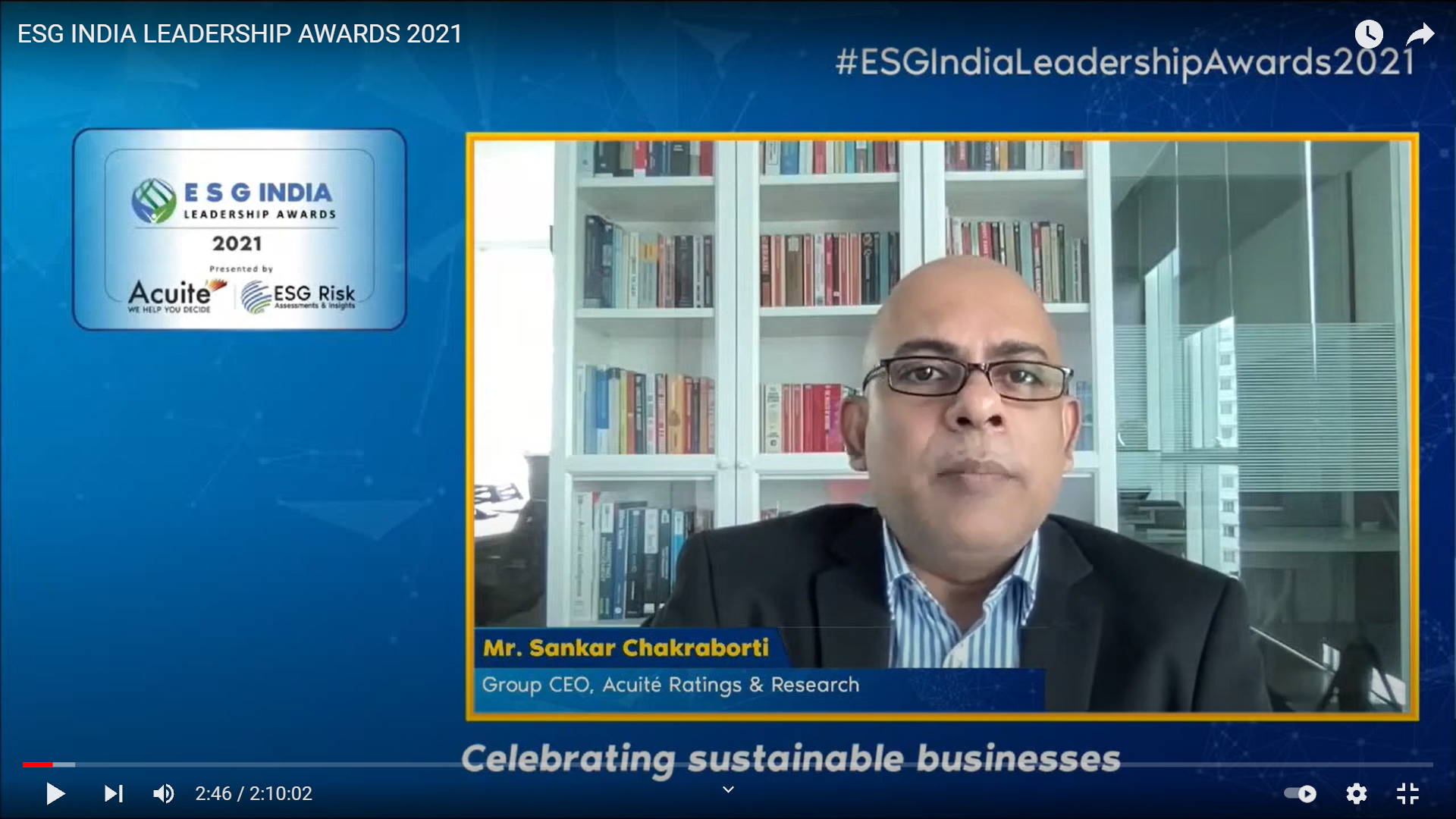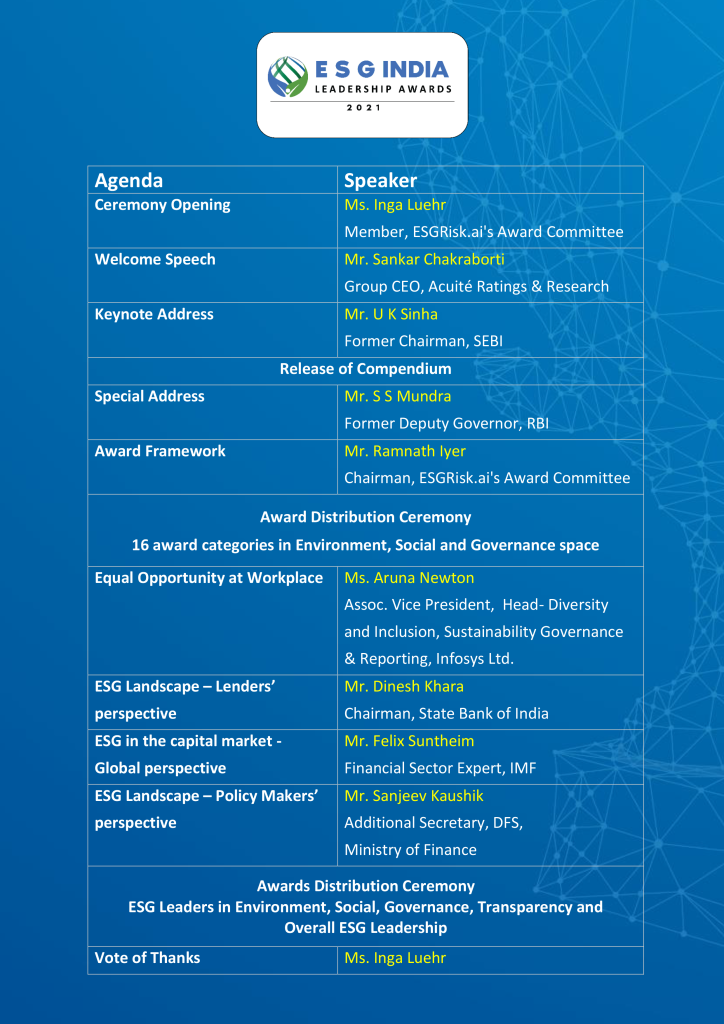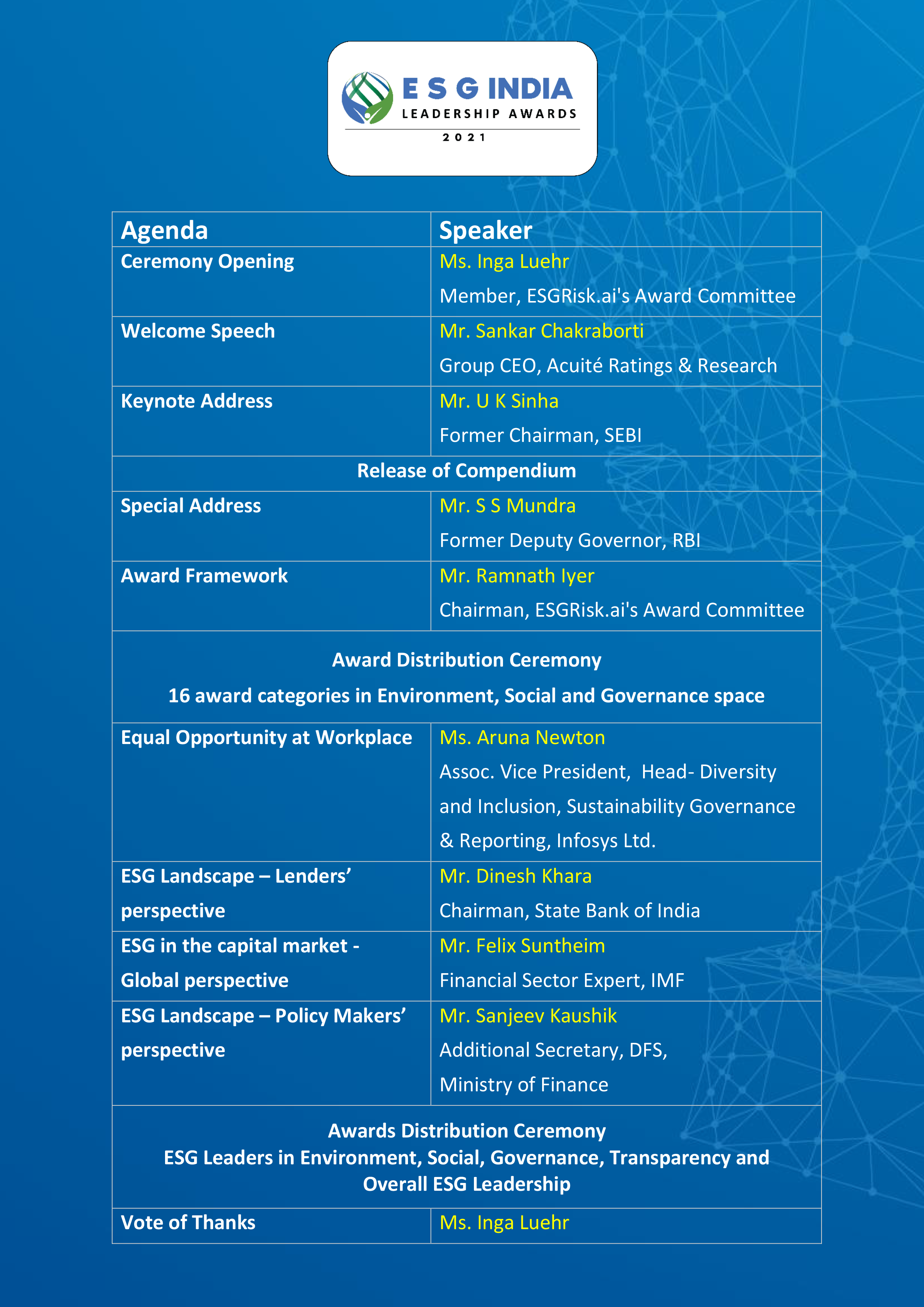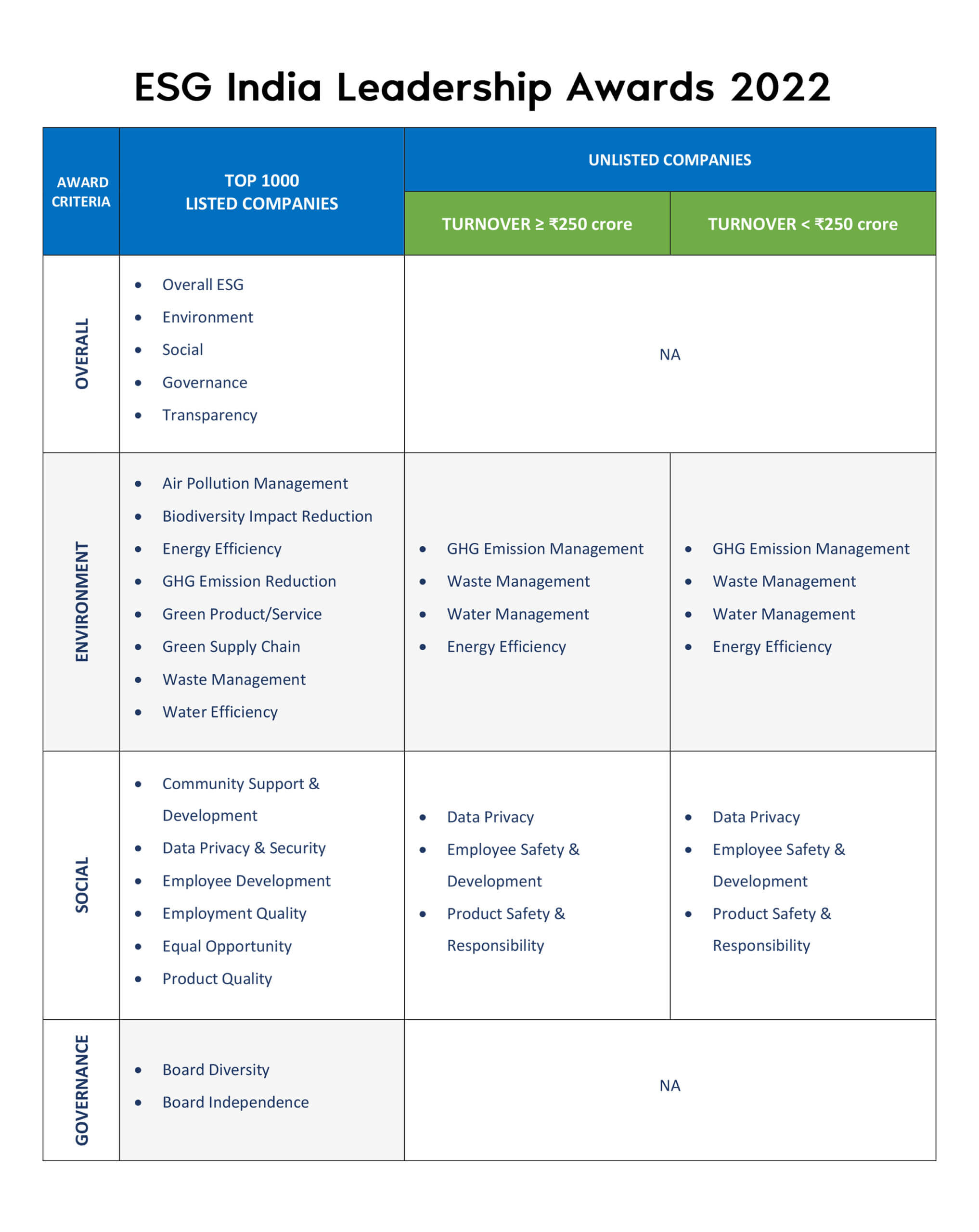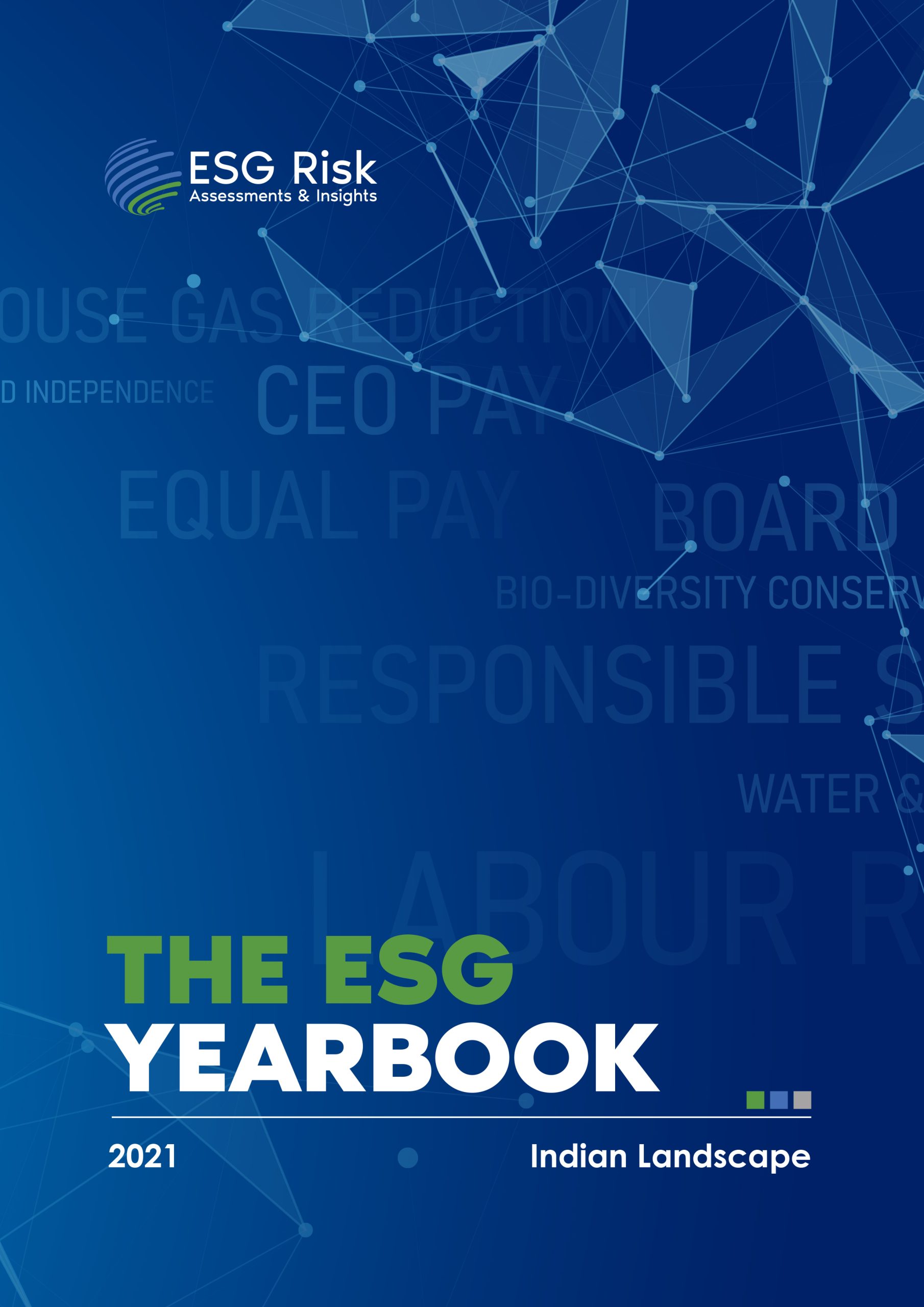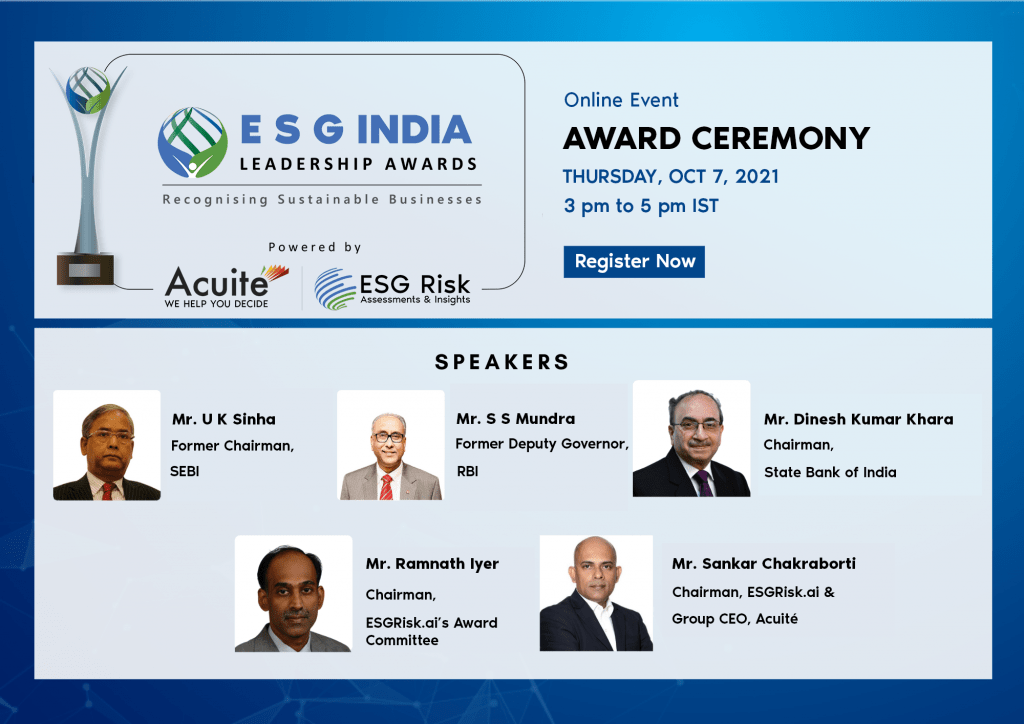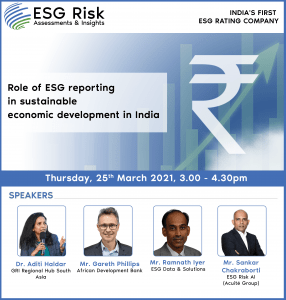About ESG India Leadership Awards
Corporate India is expected to be increasingly more vulnerable to the uncertainties arising out of climate and environment risks, social imbalance and governance risks. That is why most forward-looking corporates are now busy updating their risk management and strategy frameworks, adopt global best practices, and strengthen ESG performance.
‘ESG India Leadership Awards’ is an initiative of ESGRisk.ai that aims at recognising sustainable Indian companies and celebrate their achievements in ESG space.
The awardees are chosen after evaluating each of the top 500 listed companies (by market capitalization) through a meticulous process after collecting and analysing disclosures, stock exchange releases, annual reports, news and controversies. The awards are purely based on ESG performance of the companies and awardees did not have to nominate themselves (or pay a fee) to get evaluated for the awards.
To felicitate the winners, ESGRisk.ai will be organising a virtual award ceremony along with an in-depth discussion on the topic ‘Relevance of ESG in Capital Markets’.
Objective
- Inspire corporates to incorporate ESG in core business, guide ESG reporting, track ESG performance and progress, benchmark to industry in general and selected industry peers.
- Support investors identify ESG leaders and laggards as part of the portfolio, active investment through peer benchmarking and identify who is leading on a theme, and pick out investment accordingly
- Encourage banks to support sustainable business practices and move down the path towards greener finance by creating new sustainable banking and investing products and services and carbon-neutral banking
- Aid regulators and policymakers recognise organisations that are creating a positive impact with their ESG initiatives.
Awards Categories
ESG Leadership Awards will be presented in 21 different categories covering Environment, Social, Governance, Transparency and Overall ESG Performance among others.
- ESG Leader: Overall best practices in the spheres of environmental, social, and governance
- ESG Leader – Environment: Contribution to various environment-friendly initiatives to improve conservation, restoration, sustainable use of the terrestrial ecosystems and reduction of carbon footprints
- ESG Leader – Social: Contribution to the initiatives such as community engagement, skill development, CSR, social justice, gender equality, peace, health and well-being among others.
- ESG Leader – Governance: Outstanding governance transformation in an organisation within an ESG context, ethics, diversity and board independence.
- Transparency & Disclosures: High disclosure rates and better reporting standards indicate high levels of transparency. The publication of an annual report, sustainability report, business responsibility report, and compliance with all disclosure requirements are crucial parameters.
Environment
- Air Pollution Management: Initiatives & specific targets for reducing air pollutant emissions and disclosing their environmental impact.
- Biodiversity Impact Management: Initiatives to protect, restore and reduce the adverse impact on biodiversity and strategies for rehabilitation and resettlement programs.
- Energy Efficiency: Effective energy management which includes reducing overall energy consumption, using renewable energy in operations, having certified energy management systems, and disclosing energy consumption.
- GHG Emissions Reduction: Various initiatives undertaken for reduction of GHG emissions and carbon footprints.
- Green Supply Chain: Sustainability in the supply chain that includes sourcing products from environmentally responsible suppliers, monitoring and reducing environmental impacts at every stage.
- Green Product / Service: Initiatives to introduce, develop and market green products/services.
- Waste Management: Initiatives for managing several types of waste generated in the operations and reducing waste generation.
- Water Efficiency: Reducing, recycling and reusing water, having certified water efficiency management systems and to disclose the withdrawal and consumption of water during different processes.
Social
- Community Support & Development: Practicing community support & development and being cognizant of their impact on all facets of society, including economic, social, and environmental.
- Data Privacy and Security: Cyber security policies & practices, setting up information security management systems, and conducting data security audits.
- Employment Quality: Strategies towards fair compensation, flexible work schedules, parental leave, bereavement leave, and sabbaticals to make sure that the workforce is satisfied.
- Equal Opportunity: Diversity & inclusion practices based on age, gender, race, sexual orientation, disability, qualification, nationality, and ethnicity.
- Product Quality: Initiatives towards quality management systems, communicating product defects, product recall and measuring customer satisfaction and retention rate.
- Employee Development: Providing training, reskilling and upskilling opportunities to employees and partnering with academic institutions for the same and priority on internal job promotion and performance appraisal rate.
Governance
- Board Diversity: Board members with different ethnic backgrounds, educational backgrounds, nationalities, and cultural backgrounds.
- Board Independence: Complying with disclosure requirements and independent member requirements.
Speeches of the day
Mr. Sankar Chakraborty
Group CEO, Acuité Ratings & Research
